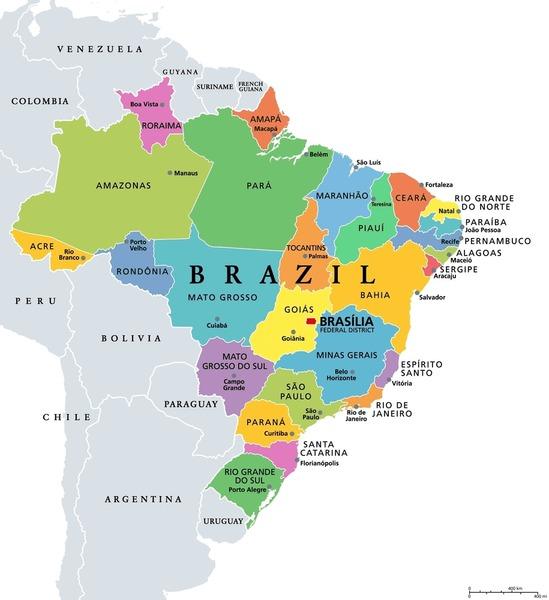A Brazilian federal judge has ordered continuous, 24-hour surveillance of former President Jair Bolsonaro, citing concerns that he poses a significant flight risk. The directive marks a notable escalation in the judicial scrutiny facing Bolsonaro as investigations into his actions during and after his presidency intensify. The move reflects mounting tensions in Brazil’s political landscape, where legal authorities are ramping up measures to ensure accountability amid deepening divisions.
Brazilian Judge Mandates 24 Hour Surveillance on Bolsonaro Citing Flight Risk
In a landmark move, a Brazilian court has imposed continuous 24-hour surveillance on the former president amid concerns that he may attempt to evade judicial proceedings. The judge cited multiple factors contributing to the flight risk assessment, including international connections, recent travel activity, and access to substantial financial resources. Authorities have intensified monitoring efforts around Bolsonaro’s known residences and frequented locations, aiming to prevent any attempts to flee the country.
Key aspects of the surveillance order include:
- Deployment of security personnel in shifts to ensure uninterrupted watch
- Restrictions on international travel and passport confiscation
- Electronic monitoring through GPS tracking devices
- Regular reporting to the court to update on surveillance status
| Surveillance Measure | Purpose | Status |
|---|---|---|
| Physical Guard Deployment | Prevent unauthorized departure | Active |
| Travel Ban Enforcement | Limit international movement | In effect |
| GPS Monitoring | Track real-time location | Installed |
Legal Implications and Security Measures Surrounding Bolsonaro’s Detainment
Following the judicial decision mandating continuous surveillance of former President Jair Bolsonaro, Brazilian authorities have entered a complex legal terrain where due process and civil liberties must be carefully balanced against national security concerns. The order reflects the judiciary’s assessment of Bolsonaro as a potential “flight risk,” triggering heightened restrictions that include 24/7 monitoring by federal agents. Legal experts emphasize that such measures, while extraordinary, are grounded in constitutional provisions allowing for preventive detention and surveillance when there is substantiated risk of evasion or interference with investigations.
To implement these restrictions effectively, security protocols have been intensified around Bolsonaro’s residence and known haunts. These include:
- Deployment of specialized federal police units equipped with digital tracking technologies;
- Real-time data sharing between regional security agencies;
- Controlled access points to prevent unauthorized departure;
- Scheduled court reviews to evaluate the necessity of ongoing surveillance.
This multi-layered approach underscores the Brazilian judiciary’s commitment to both upholding legal standards and mitigating potential threats, while also inviting ongoing debate about the balance between individual rights and collective security.
| Measure | Description | Legal Basis |
|---|---|---|
| 24/7 Surveillance | Continuous monitoring of movements | Preventive Detention Laws |
| Digital Tracking | Use of GPS and communication intercepts | Judicial Warrants |
| Restricted Travel | Ban on leaving designated areas | Flight Risk Assessment |
Experts Recommend Enhanced Monitoring Protocols to Prevent Potential Escape Attempts
Authorities are now urged to implement rigorous and continuous surveillance measures following concerns about potential attempts to evade judicial restrictions. Legal analysts and security experts have emphasized the necessity of deploying comprehensive monitoring systems, including 24/7 video surveillance, GPS tracking, and frequent location verifications, to mitigate the risks associated with high-profile individuals under legal scrutiny. Such strategies aim to preserve the integrity of ongoing investigations while ensuring public safety.
Key recommendations outlined by experts include:
- Installation of advanced biometric access controls within detention or monitored premises
- Dedicated security teams trained to respond promptly to any escape attempt
- Regular coordination between federal and local enforcement agencies
- Immediate reporting protocols for suspicious activities or security breaches
| Measure | Purpose | Expected Outcome |
|---|---|---|
| 24/7 Surveillance | Continuous monitoring | Prevent unauthorized movements |
| GPS Tracking | Real-time location data | Instant alerts on movement |
| Biometric Controls | Access authorization | Limit entry to authorized personnel only |
The Way Forward
As the legal proceedings surrounding former President Jair Bolsonaro continue to unfold, the decision to impose 24-hour surveillance underscores the heightened concerns over his potential flight risk. This development marks a significant moment in Brazil’s ongoing political and judicial reckoning, reflecting broader tensions within the country’s political landscape. Observers will be closely watching how these measures impact both Bolsonaro’s legal battles and his influence on Brazil’s future.




